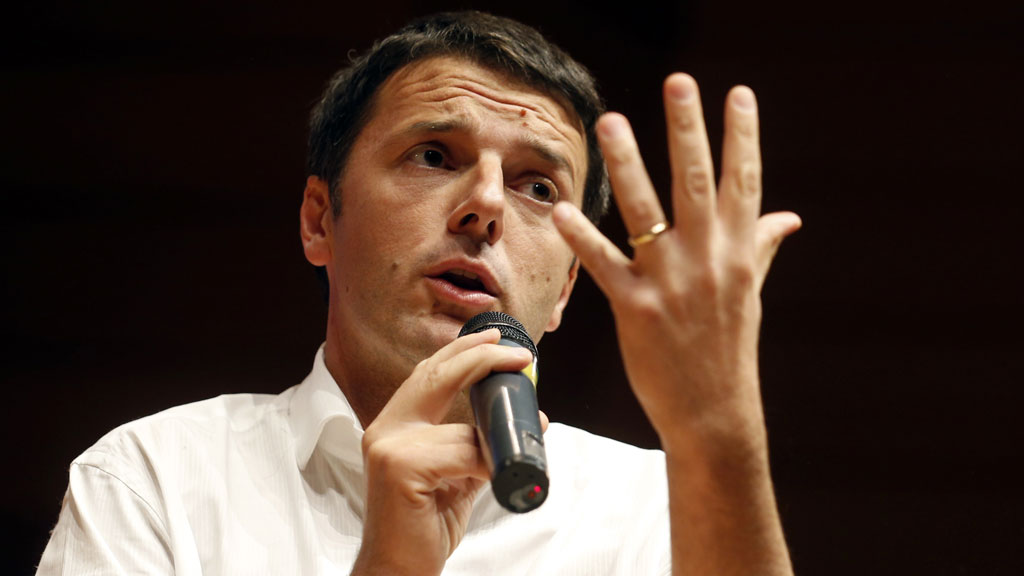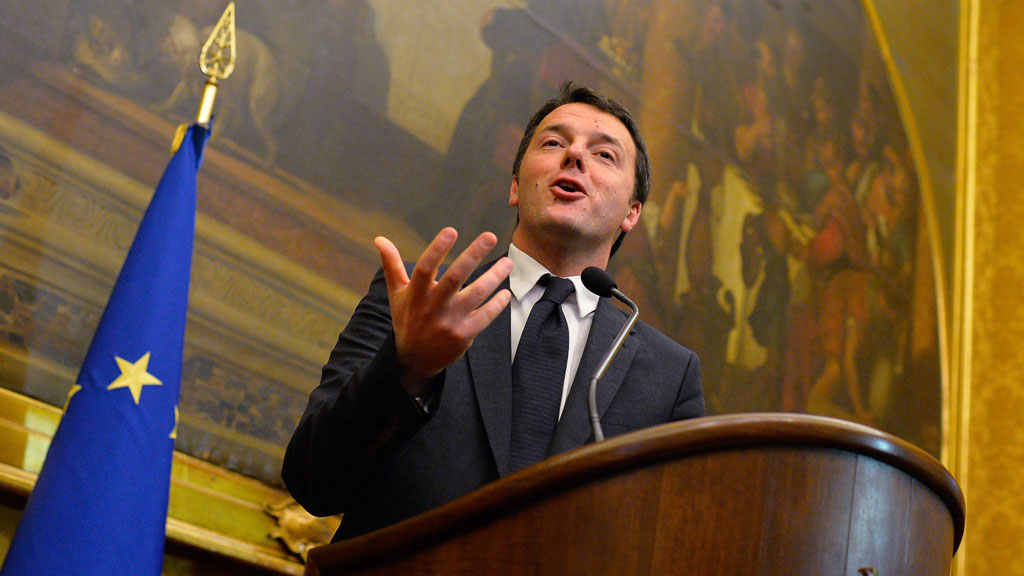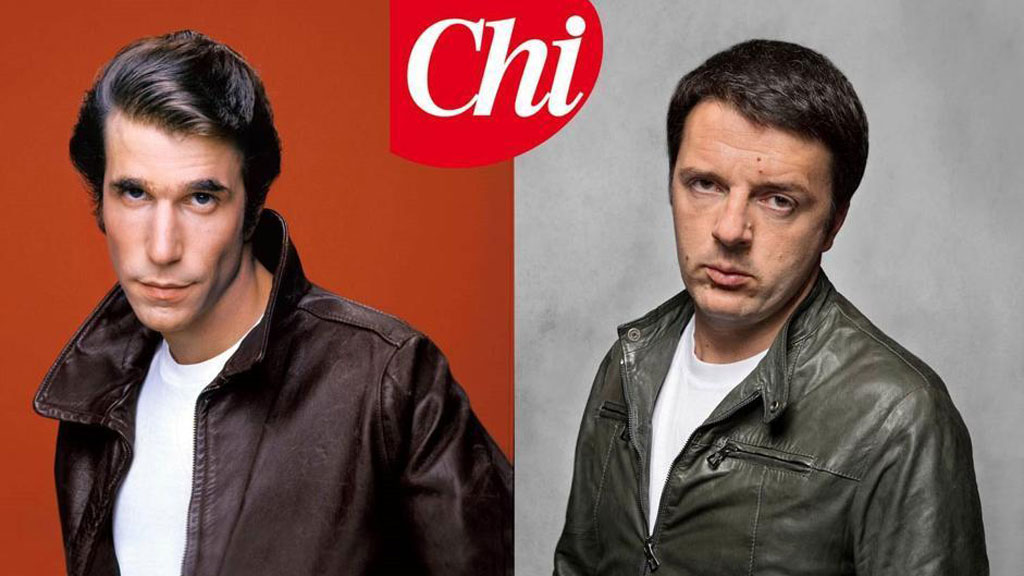Five things you need to know about Italy’s Matteo Renzi
The new Silvio Berlusconi or the Italian Tony Blair? As Matteo Renzi prepares to take power, Channel 4 News asks: who is Italy’s new prime minister-designate?

1. Renzi is just 39
At 39, Mr Renzi is the youngest head of government in the European Union. Not only has he never run for prime minister – he has never even been elected to parliament.
In 2008, against the wishes of the party, Mr Renzi ran in the centre-left Democratic Party (PD) primary for Florence mayor and won.
He then ran for the PD leadership in late 2012 but lost to Pier Luigi Bersani, who failed to win last year’s national election.
Mr Renzi waited in the wings and then, in December of that year, he won 70 per cent of the almost 3 million votes cast in a PD leadership election.
On 17 February 2014, he was asked to form a government by President Giorgio Napolitano after Prime Minister Enrico Letta resigned.
2. Renzi sees himself as a reformist
Mr Renzi presents himself as a straight-talking outsider who despises Rome’s baroque political deals – he is seen as reformist and has no ties with the old Communist party.
He has already promised to reshape the Italian economy and also ensure his government’s survival until 2018.
On Monday he said: “By the end of February, I will prepare an urgent timetable on constitutional and electoral reforms to bring to the attention of the parliament.
“Immediately after that, in March, employment reform; then in April, public administration; and in May, tax reform.”

His main challenge, however, will to maintain legitimacy in the eyes of voters.
Since 1992, Italy has had eight (nine with Mr Renzi) prime ministers. Of these, only two won elections: Silvio Berlusconi (in 2008) and Romani Prodi (in 2006).
3. Berlusconi still holds the key to power
Ironically, Mr Renzi needs former premier Berlusconi to push through electoral reforms. On Wednesday he concluded government-formation consultations with Mr Berlusconi.
The head of the center-right Forza Italia party had already ruled out joining a coalition led by Mr Renzi, but he has vowed to mount a “responsible” opposition. He said Forza Italia would vote in favor of Mr Renzi initiatives if deemed “in the interest of Italians”.
The ex-premier, kicked out of the senate last year for a tax-fraud conviction, has already successfully negotiated an election-reform bill with Mr Renzi.
4. Renzi has friends in high places
In 2009 Mr Renzi founded the “Leopolda” – an annual public meeting at Leopolda station in Florence where he invited members of the public, writers, students, politicians and local business leaders to talk about problems facing Italy.
He has the support and backing of influential business men including Diego Della Valle and Carlo De Benedetti, owner of La Repubblica newspaper.
Although Mr Renzi lacks experience in managing the unions, some union bosses have said they are waiting “with interest” to see what happens when he takes power.

5. Renzi’s nickname is Demolition Man
Mr Renzi’s nickname is the “Rottamatore” (Demolition Man) of Italian politics, which he earned by endlessly lampooning the political establishment.
He is often seen in jeans and a leather jacket riding his bicycle in Florence, and once posed on the front cover of celebrity magazine Chi dressed as the Fonz from Happy Days.
In a book entitled Matteo the Conquerer, political mentor Lapo Pistelli was quoted as likening Mr Renzi to the Road Runner cartoon character: “He zips past, leaving everyone who is trying to push him off a cliff in his dust.”
His background is in the more catholic wing of the centre-left – he is a practising Catholic and maintained good ties with the church, despite his relatively liberal views on civil rights for gay couples.
In terms of communications, his style has had the most impact since Mr Berlusconi, and he surrounds himself with close aides and press managers.
He is married to schoolteacher Agnese Landini and has two sons and a daughter.
With thanks to political expert and founder of @electionista Alberto Nardelli